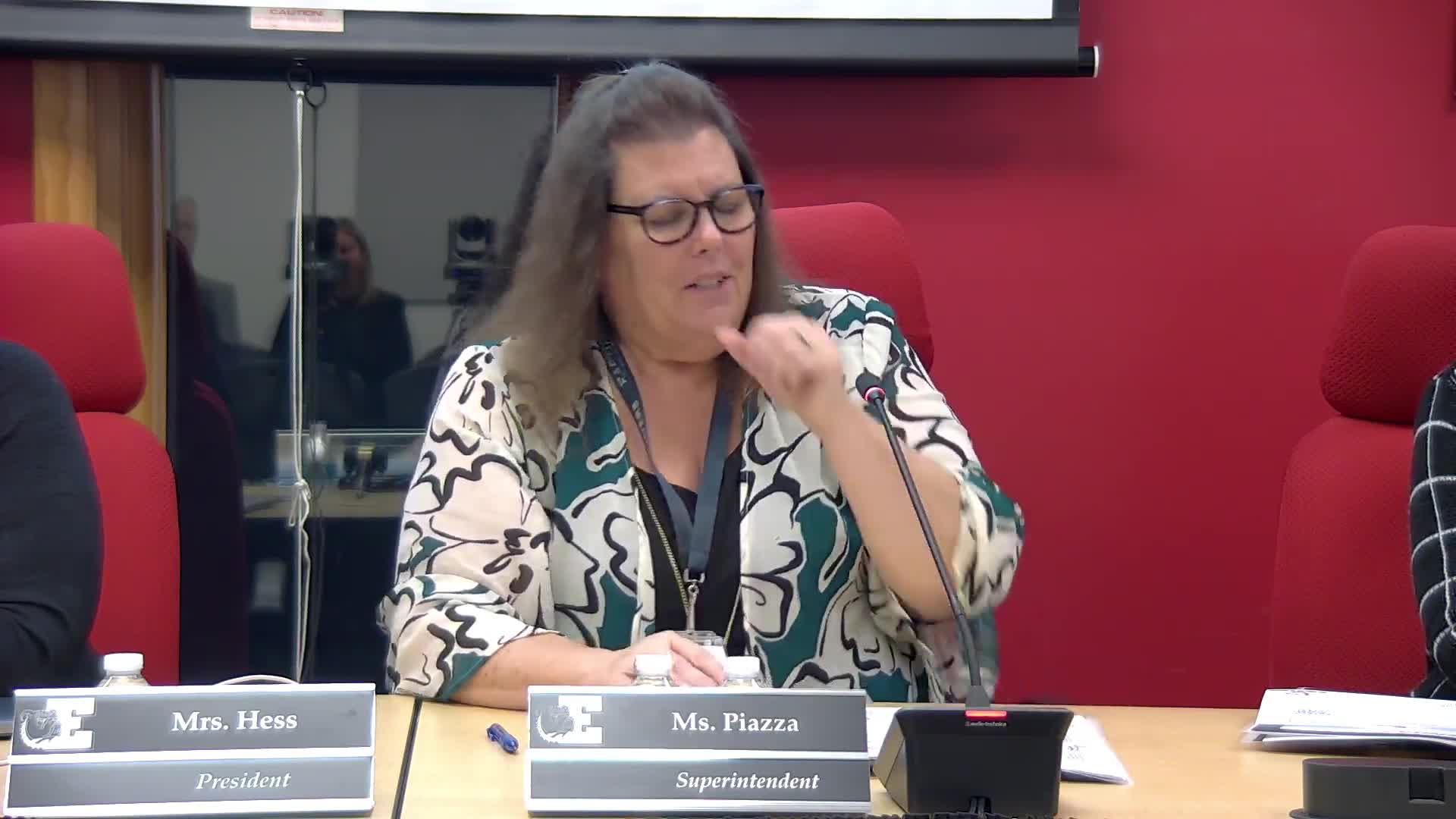District previews plan to finance $300 million capital program; reimbursement resolution slated for Oct. 28
Get AI-powered insights, summaries, and transcripts
Subscribe
Summary
Raymond James and financial advisers presented a financing plan for a roughly $300 million capital program, including a recommendation that the board adopt a reimbursement resolution on Oct. 28 to preserve the option to reimburse district expenditures with future tax‑exempt bond proceeds.
Financial advisers from Raymond James and PFM presented a proposed multi-year financing approach for a roughly $300 million capital plan centered on a new high school, and asked the board to consider a reimbursement resolution at its Oct. 28 meeting.
Jack and Ali from Raymond James described market trends, refinancing opportunities in the district’s existing 2018 and 2019 bond issues and a structure that would “wrap” new debt around existing debt service to limit short-term budget impact. “We can come in and… wrap around the existing debt service,” Ali said, explaining that the structure minimizes principal repayments in the near term and phases in debt service more gradually.
Advisers showed projections that included potential savings if 2018 and 2019 bonds are refunded and outlined a four‑issuance scenario (seed money of roughly $20 million, followed by additional issuances) to phase in funding for projects over several years. The presentation used the district’s Act 1 index (adjusted index reported at 4.5) to estimate how much annual budget capacity could be dedicated to debt service while preserving other priorities.
Advisers recommended that the board adopt a reimbursement resolution at its Oct. 28 meeting. They said the IRS tax‑code provision behind the resolution allows the district to reimburse expenditures made now from future tax‑exempt bond proceeds, and that the resolution looks back 60 days from the adoption date.
A tentative timetable presented: present the reimbursement resolution Oct. 28; follow up with another update in January after the district audit and rating materials are more developed; begin the rating process in February–March; sell bonds and place the first new‑money issuance in April for funds available in May.
Administrators and advisers also noted potential partial savings from refunding existing issues and said they will continue to monitor market conditions and savings assumptions. The advisers suggested adding a half‑percent contingency to the rate assumptions in financing models.
Less critical details: the advisers discussed the district’s existing gross debt service numbers, state reimbursements that reduce net debt requirements, and the possibility of including the 2022 issue in refinancing depending on economics.
